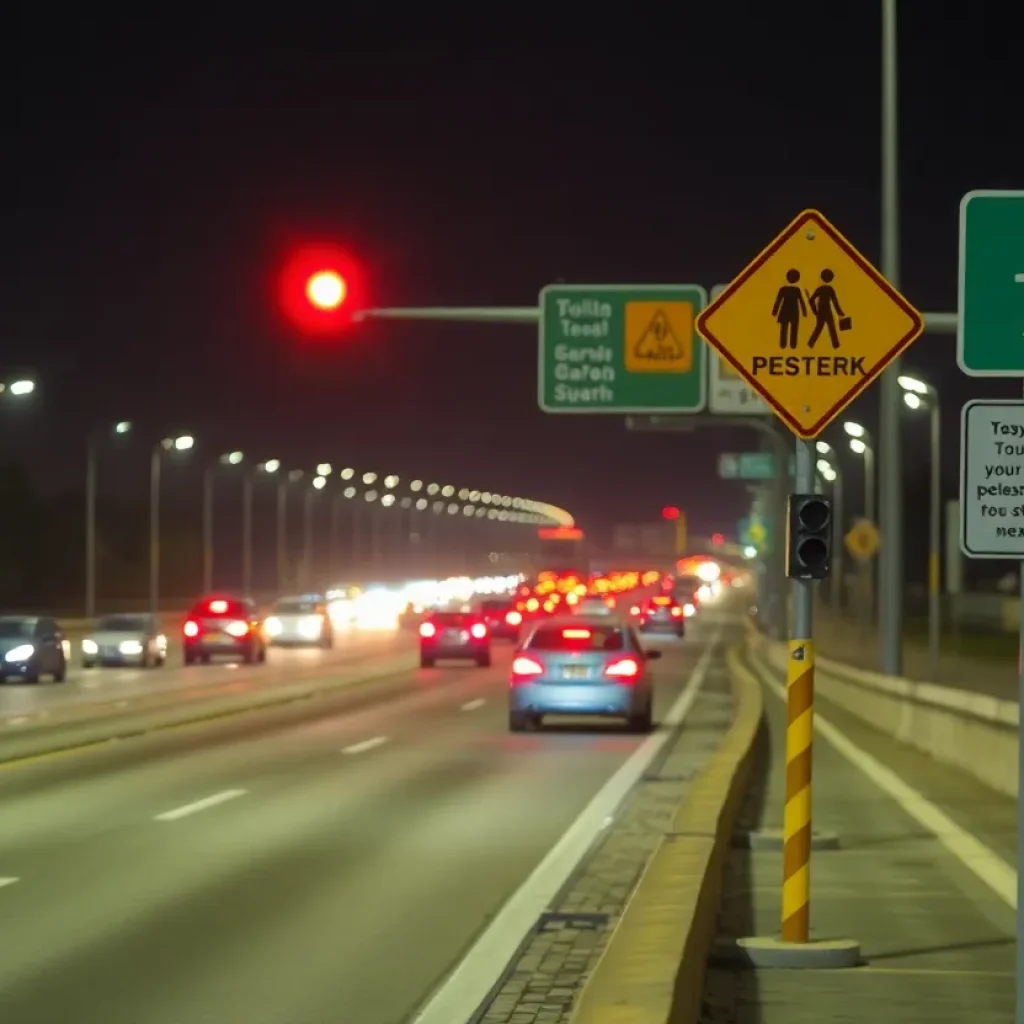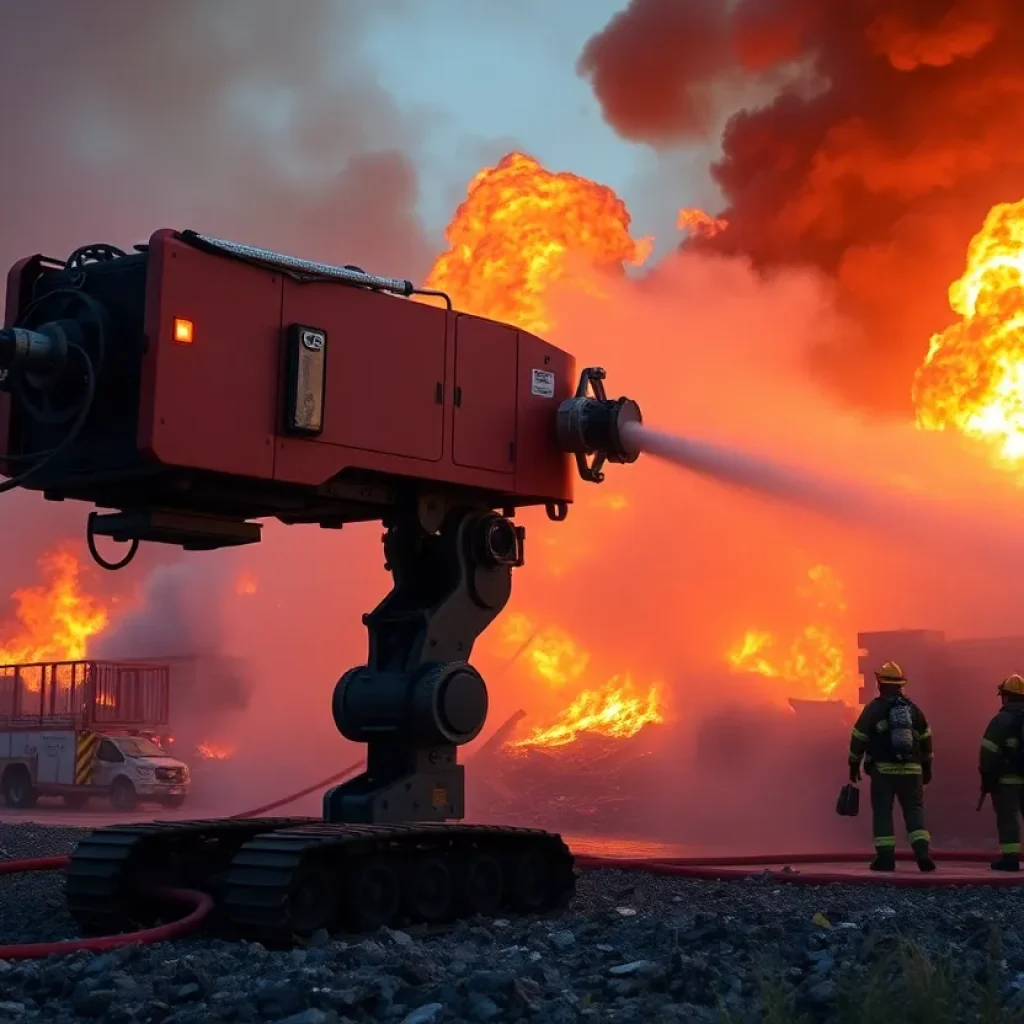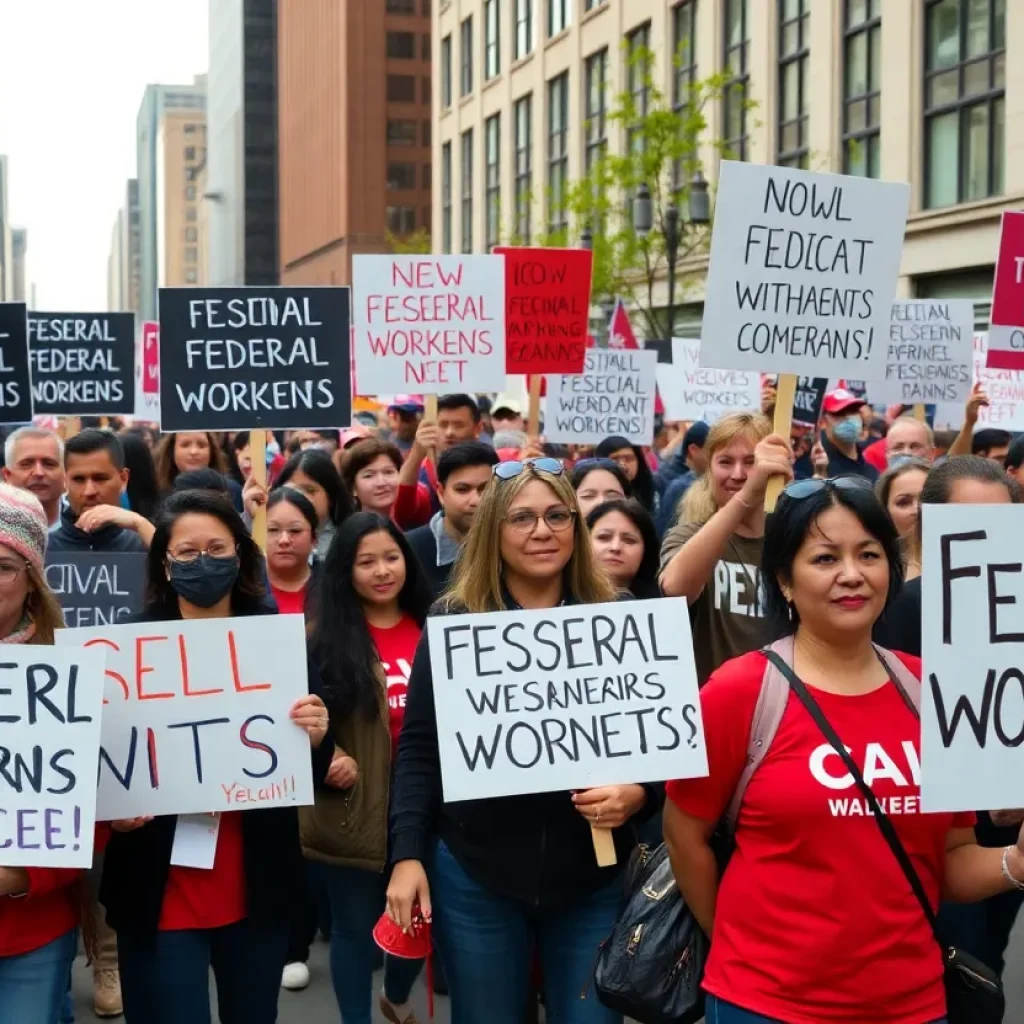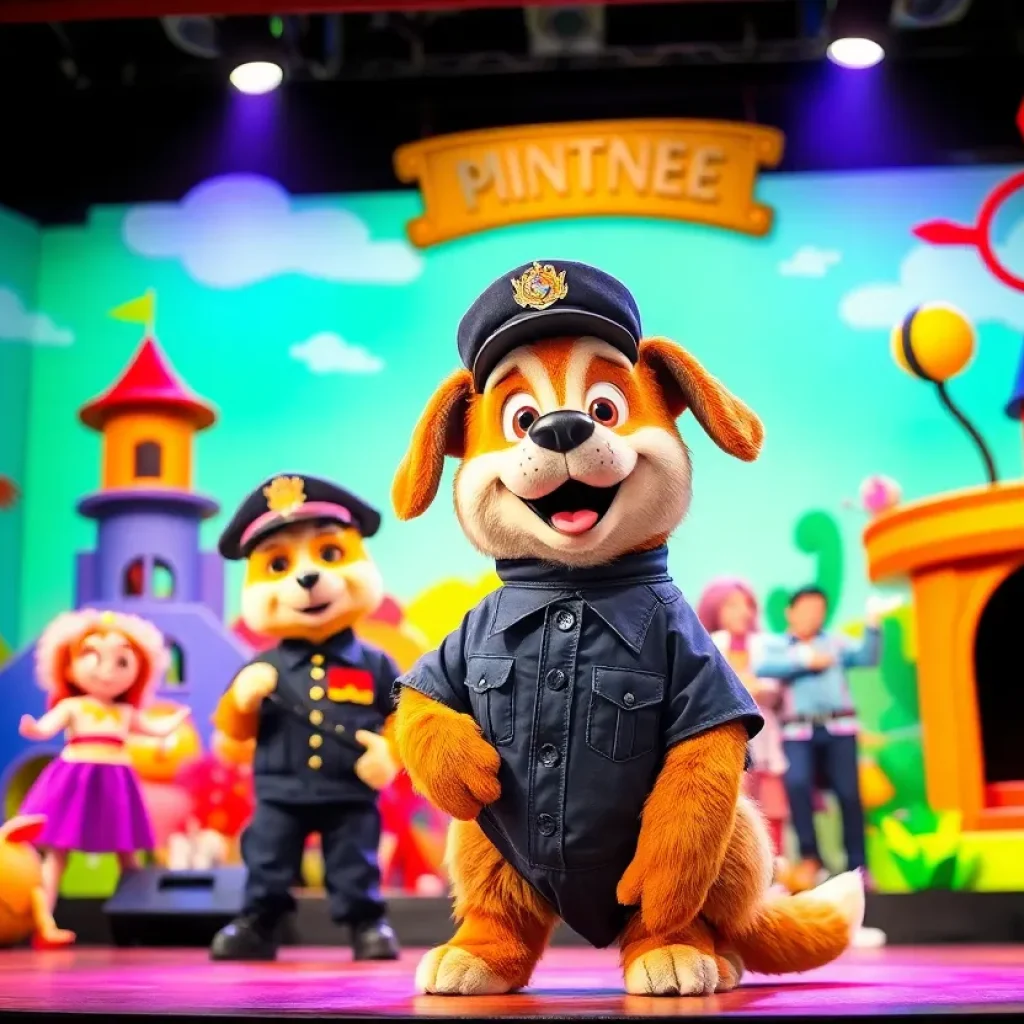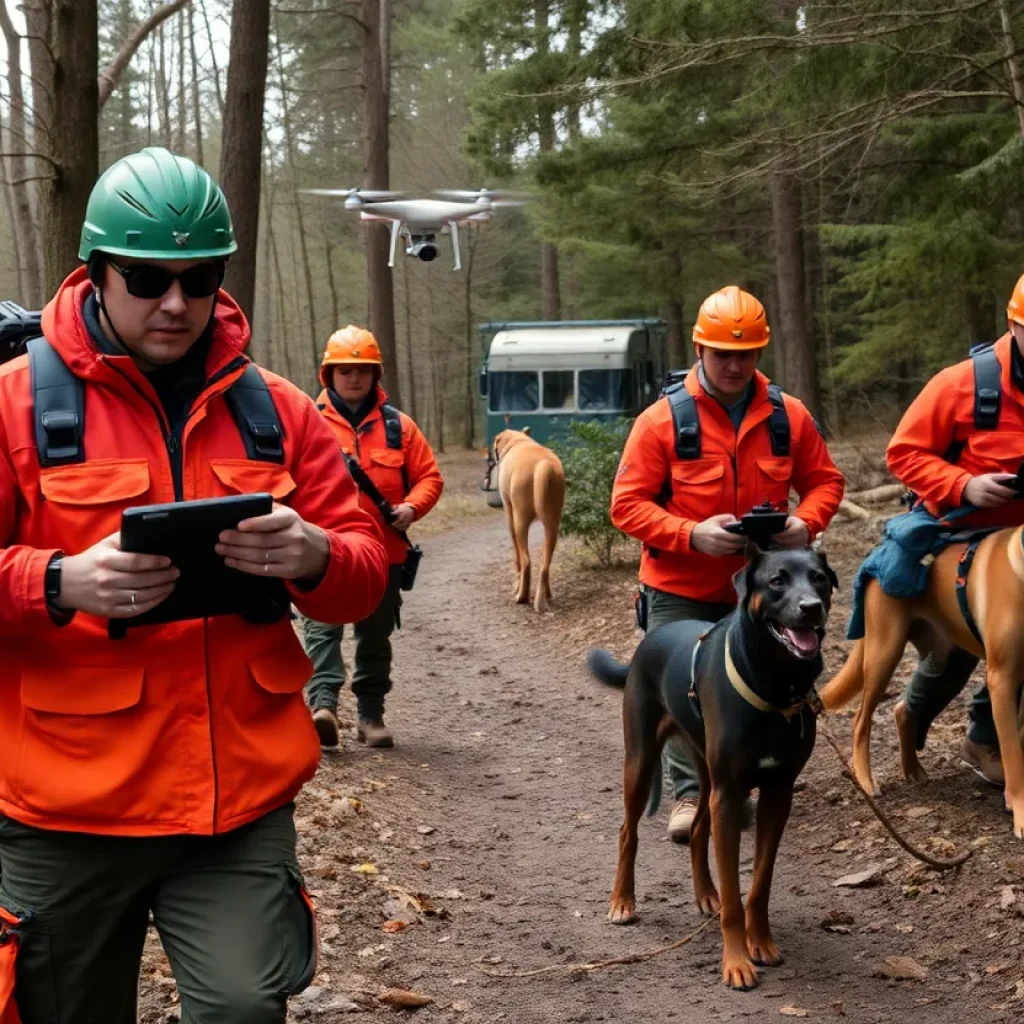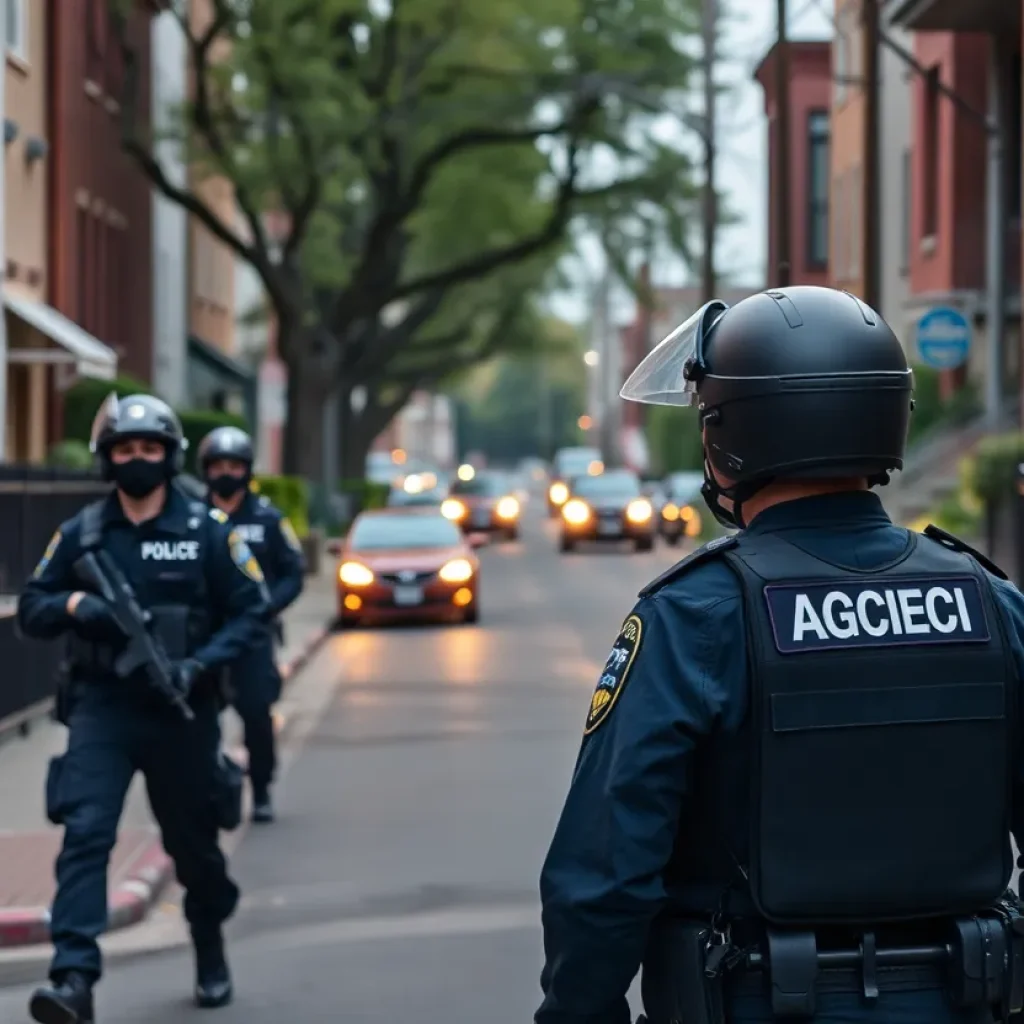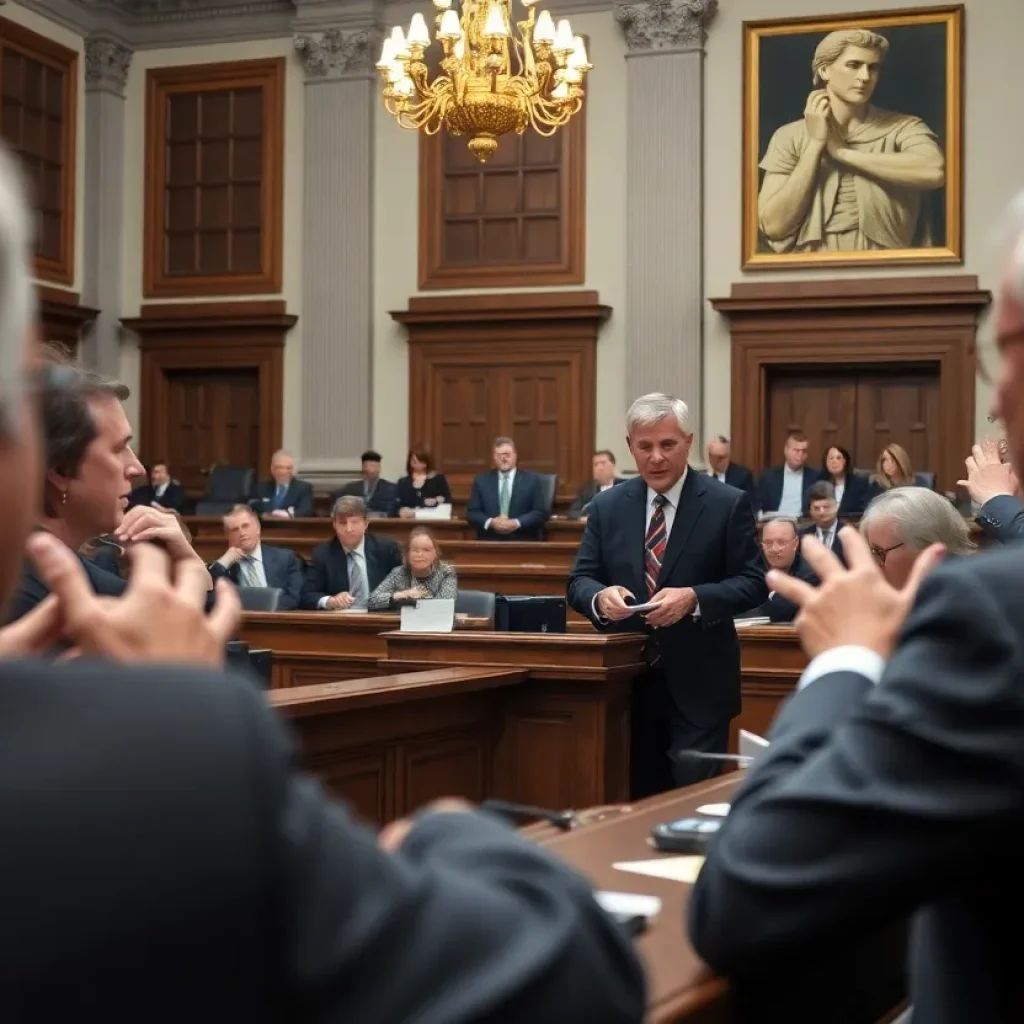Kansas City News
TOP kansas city STORIES
BREAKING NEWS
Kansas City Tragedy: Pedestrian Loses Life After Being Struck on I-635
News Summary A tragic incident occurred on March 15, 2025, when a pedestrian was fatally struck by a vehicle on Interstate 635 in Kansas City. The driver remained at the...
Massive Blaze Engulfs Kansas City Recycling Facility
News Summary A significant fire erupted at the Batliner Paper Stock recycling center in Kansas City on March 15, 2025. Firefighters employed a groundbreaking remote-operated robot that delivers 2,500 gallons...
Kansas City Rally Supports Federal Workers Facing Job Cuts
News Summary Hundreds gathered in Kansas City to rally in solidarity with federal workers facing job cuts due to actions from the Trump administration. Organizers, primarily federal employee unions, expressed...
Kansas City Faces Traffic Nightmares Amidst Multiple Incidents
News Summary Kansas City is grappling with severe traffic issues due to heavy rain and multiple vehicle incidents. A series of breakdowns and crashes on major routes like I-29, I-35,...
Kansas City Families Fear Medicaid Cuts Amid Budget Revisions
News Summary In Kansas City, families are expressing concern over proposed Medicaid cuts as the U.S. House pushes a budget resolution to reduce federal spending by $900 billion. Single mother...
Independence Police Pursuit Ends in Crash and Arrests
News Summary On March 14, 2025, the Independence Police Department was involved in a dramatic pursuit that began with a routine traffic stop and escalated into a heart-pounding chase. The...
BUSINESS
Kansas City Faces Accounting Talent Crisis Amid Job Opportunities
News Summary Kansas City is experiencing a critical shortage of qualified accountants despite an increasing demand for these professionals. Over 300,000 accountants have left their jobs in the past two...
Kansas City Launches Grant Program for Small Businesses
News Summary Kansas City has introduced the ‘Back to Business’ grant program to assist small businesses affected by vandalism and burglaries. With $325,000 allocated, the city aims to help 100...
Kansas City Congressman Advocates for SBA Office Relocation
News Summary U.S. Congressman Mark Alford is pushing for the U.S. Small Business Administration’s regional offices to move from downtown Kansas City to Columbia, Missouri. Alford argues that the current...
Kansas City Ranks as a Top Affordable Renting Destination
News Summary Kansas City is gaining recognition for its affordable rental market, particularly in the Broadway Gillham neighborhood, which is ranked as the fifth-most affordable area for renters in the...
Columbia Pushes for SBA Office Relocation Amid Controversy
News Summary U.S. Representative Mark Alford advocates for relocating the Small Business Administration’s regional office from Kansas City to Columbia. He argues this move would enhance support for local businesses...
Kansas City: A Historical Journey Through E. 12th Street
News Summary Discover the rich history of E. 12th Street in Kansas City, tracing its evolution from a bustling hub of shops and community spirit in 1909 to modern transformations....
Kansas City Welcomes The Yard Milkshake Bar: A Sweet Addition
News Summary Kansas City is excited to announce the opening of The Yard Milkshake Bar in the Power & Light District, set to open on March 14. Known for its...
Wichita Welcomes The Big Biscuit Breakfast Chain
News Summary Wichita is set to open a new location of The Big Biscuit, a popular breakfast chain from Independence, Missouri. The new restaurant will provide local biscuit lovers with...
Kansas City Seniors Scandalized by Faked Death in Support Group
News Summary A woman in Kansas City deceived members of an online support group by faking her death from cancer, leading to an emotional fallout within the senior community. After...
Events/What's Happening
Overland Park Named Fifth Happiest City in America for 2025
News Summary Overland Park, Kansas, has been named the fifth happiest city in America for 2025 by WalletHub. This accolade follows its strong performances in previous years, showcasing a consistent...
Kansas City Gears Up for St. Patrick’s Day Parade with Safety in Mind
News Summary Kansas City is preparing for its annual St. Patrick’s Day parade on March 17, expecting up to 400,000 attendees. In light of last year’s tragic incident, the Kansas...
Transformative Weekend Ahead in Kansas City
News Summary This weekend, Kansas City will be alive with vibrant celebrations and new dining experiences in celebration of St. Patrick’s Day and the Big 12 basketball tournament. Events include...
Kansas City Gears Up for Total Lunar Eclipse
News Summary Kansas City is preparing for its first total lunar eclipse in three years on March 14. Residents can expect a breathtaking spectacle as the moon transforms into a...
Kansas City Prepares for ‘Dog Man: The Musical’
News Summary Kansas City is buzzing with excitement as tickets for ‘Dog Man: The Musical’ will be available starting March 17, 2025. Based on the popular book series by Dav...
Kansas City Voters Face Crucial Decision on School Bond
News Summary On April 8, Kansas City voters will decide on a significant school bond proposal worth $474 million aimed at enhancing educational facilities. The bond primarily focuses on Kansas...
Kansas City Prepares for a Stellar Broadway Season
News Summary Kansas City’s PNC Broadway series has announced its thrilling lineup for the 2025-2026 season, featuring popular shows like ‘Wicked,’ ‘Hamilton,’ and ‘The Book of Mormon.’ Theater enthusiasts can...
Kansas City Prepares for Streetcar Expansion
News Summary Kansas City is gearing up for an expansion of its streetcar service by March 8, 2025, enhancing public transportation just in time for major sports events. With four...
Kansas City Takes Major Steps Toward a Safer 71 Highway!
News Summary Kansas City is moving ahead with a $5 million federally funded project to improve safety and connectivity along the 71 Highway. The initiative addresses the highway’s dangerous intersections...
CRIME
Kansas City Tragedy: Pedestrian Loses Life After Being Struck on I-635
News Summary A tragic incident occurred on March 15, 2025, when a pedestrian was fatally struck by a vehicle on Interstate 635 in Kansas City. The driver remained at the...
Kansas City Man Tragically Loses Life in Motorcycle Crash
News Summary A heartbreaking motorcycle crash claimed the life of a 51-year-old man in Kansas City. The accident, occurring on Route C in Benton County, highlights the importance of safety...
Olathe Community Reacts to Recent Missing Persons Cases
News Summary The Olathe community is on high alert as missing persons cases unfold. While Rachel B. Gross has been found safe after going missing, the search continues for Jordan...
Tragic Death of Kansas City Sports Reporter Raises Questions
News Summary The death of Kansas City sports reporter Adan Manzano during Super Bowl LIX in New Orleans has led to a disturbing investigation. With links to a woman charged...
Kansas City Woman Takes Legal Action After Dog Attack
News Summary A Kansas City woman, Holly Lane, is suing the Kansas City Pet Project following a tragic dog attack that led to the death of cyclist Chris Culbertson. The...
Urgent Search Continues for Missing Man in Miami County
News Summary The search for Jordan Yust, missing since March 3, intensifies as Miami County authorities deploy K-9 units, drones, and community efforts to find him. Yust, last seen driving...
POLITICS
Massive Blaze Engulfs Kansas City Recycling Facility
News Summary A significant fire erupted at the Batliner Paper Stock recycling center in Kansas City on March 15, 2025. Firefighters employed a groundbreaking remote-operated robot that delivers 2,500 gallons...
Kansas City Rally Supports Federal Workers Facing Job Cuts
News Summary Hundreds gathered in Kansas City to rally in solidarity with federal workers facing job cuts due to actions from the Trump administration. Organizers, primarily federal employee unions, expressed...
Kansas City Families Fear Medicaid Cuts Amid Budget Revisions
News Summary In Kansas City, families are expressing concern over proposed Medicaid cuts as the U.S. House pushes a budget resolution to reduce federal spending by $900 billion. Single mother...
Controversy Strikes Kansas City as Senator Faces Assault Claims
News Summary Missouri State Senator Barbara Washington is embroiled in controversy following allegations of assault made by local resident Shaquita Williams. The claims stem from an incident at an election...
Kansas City Implements New Ordinance to Boost Police Presence
News Summary In response to a surge in property crimes, Kansas City has enacted a new ordinance allowing the city manager to hire off-duty police officers for neighborhood patrols. This...
Kansas City Faces Uncertainty Amid Federal Workforce Firings
News Summary Kansas City is in turmoil following recent mass firings within the federal workforce, including Navy veteran Cynthia Clark. The city is witnessing a wave of terminations across various...
Tragic Death of Kansas City Sports Reporter Raises Questions
News Summary The death of Kansas City sports reporter Adan Manzano during Super Bowl LIX in New Orleans has led to a disturbing investigation. With links to a woman charged...
Tensions Rise in Missouri Over Federal Workforce Cuts
News Summary In Columbia, Missouri, political tensions escalate as State Rep. David Tyson Smith accuses U.S. Rep. Mark Alford of intimidation regarding VA workforce cuts. Calls from frustrated constituents highlight...
Missouri Legislature Votes to Control St. Louis Police
News Summary Missouri lawmakers voted 27 to 5 in favor of a bill to place the St. Louis Metropolitan Police Department under state control. Supporters, including some Kansas City Democrats,...
SPORTS
Transformative Weekend Ahead in Kansas City
News Summary This weekend, Kansas City will be alive with vibrant celebrations and new dining experiences in celebration of St. Patrick’s Day and the Big 12 basketball tournament. Events include...
Kansas City Prepares for Streetcar Expansion
News Summary Kansas City is gearing up for an expansion of its streetcar service by March 8, 2025, enhancing public transportation just in time for major sports events. With four...
Missouri Celebrates Team Spirit Ahead of Super Bowl LIX
News Summary The state of Missouri is bursting with pride as the Kansas City Chiefs prepare for their third consecutive Super Bowl appearance against the Philadelphia Eagles. The iconic Missouri...
Kansas City Streetcar Returns for Super Bowl LVIII
News Summary Kansas City celebrates the return of the streetcar just in time for Super Bowl LVIII. After a brief closure for track construction, service resumed on February 7, 2025,...
Kansas City Prepares for Super Bowl LIX: TV Schedule Changes
News Summary Kansas City is buzzing as fans gear up for Super Bowl LIX, where the Chiefs will face the Eagles. Viewers should note schedule changes, including a late-night airing...
Kansas City Prepares for Chiefs Parade Amid Economic Concerns
News Summary As Kansas City gears up for a potential Chiefs parade celebrating a third consecutive Super Bowl title, the city also grapples with economic challenges stemming from ongoing trade...
Kansas City Prepares for 2026 FIFA World Cup
News Summary Kansas City is gearing up for the 2026 FIFA World Cup with an investment proposal of $40.5 million from Governor Mike Kehoe, aiming to enhance security, transportation, and...
Philadelphia Sparks Debate Over NL MVP Honors Amid Castellanos’ Support for Iglesias
Philadelphia Sparks Debate Over NL MVP Honors In the bustling atmosphere of Philadelphia, the baseball chatter has been buzzing around a bold statement made by Nick Castellanos, outfielder for the...
Sacramento Kings Ignite Fan Excitement with Thrilling Win Streak
Sacramento Kings Fans Getting Fired Up Over Recent Win Streak Hey there, basketball enthusiasts! If you’ve been keeping an eye on the Sacramento Kings, you might have noticed something pretty...





